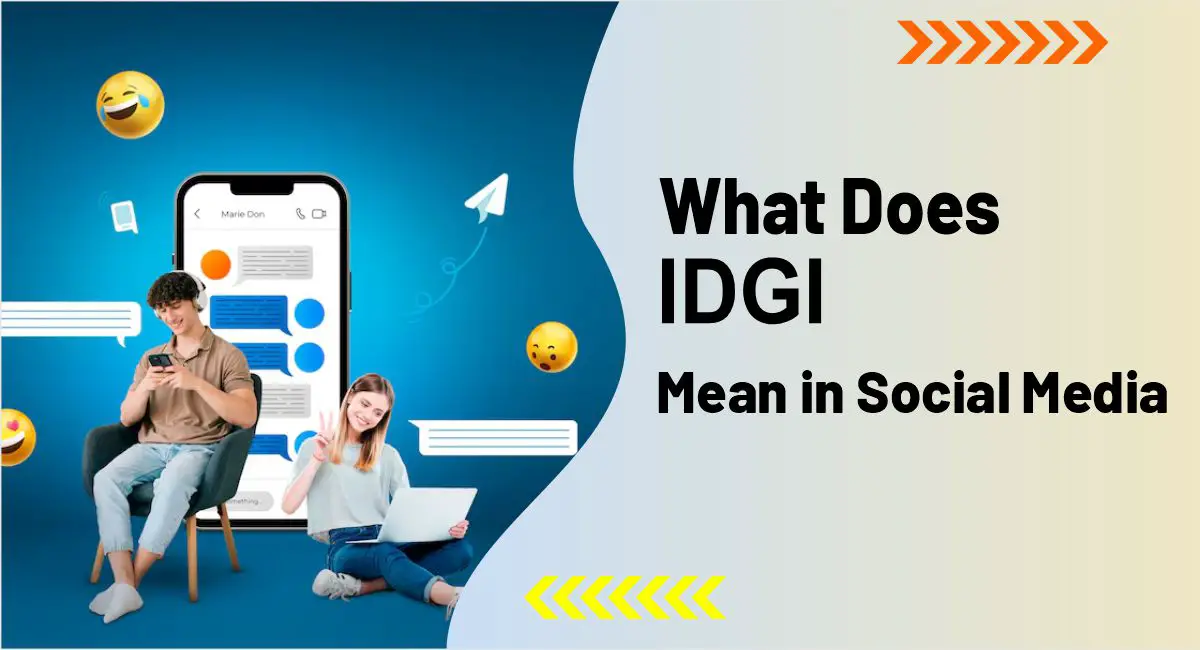In the ever-evolving landscape of digital communication, acronyms and abbreviations have become integral to how we express ourselves online. One such abbreviation that encapsulates a common human experience—confusion—is “IDGI.” Standing for “I Don’t Get It,” this acronym succinctly conveys a lack of understanding in various contexts, from social media posts to text messages.
The Meaning of “IDGI”
“IDGI” is an abbreviation for the phrase “I don’t get it.” It’s used to express confusion or a lack of understanding about something, whether it’s a joke, a meme, a statement, or a situation. For instance, if someone shares a complex meme or an inside joke, a person unfamiliar with the context might respond with “IDGI” to indicate their confusion.
This abbreviation serves as a prompt for clarification, inviting others to explain or elaborate on the subject at hand. It’s a concise way to express the need for further information without delving into lengthy explanations.
Origins and Evolution
The exact origins of “IDGI” are somewhat obscure, but it’s believed to have emerged in online chat rooms and forums in the early 2000s. As digital communication became more prevalent, users sought efficient ways to convey complex emotions and reactions. Abbreviations like “IDGI” allowed for quick, clear communication, especially in fast-paced online environments.
Over time, “IDGI” gained traction across various platforms, including Reddit, Twitter, Instagram, and Facebook. Its usage expanded beyond private messages to public comments and discussions, reflecting its versatility in expressing confusion in diverse contexts.
Usage in Online Conversations
Social Media Interactions
On platforms like Twitter and Instagram, “IDGI” is commonly used in response to posts that are ambiguous, ironic, or laden with cultural references. For example, if a tweet contains a niche meme or a sarcastic remark, a user might reply with “IDGI” to indicate their lack of understanding.
Comment Sections
In comment sections of articles, videos, or social media posts, “IDGI” serves as a tool for readers to express confusion about the content. This can prompt the original poster or other readers to provide explanations, fostering engagement and discussion.
Text Messaging and Chats
In personal conversations, “IDGI” is used to quickly convey that the sender doesn’t understand a particular message or reference. It’s a casual, non-confrontational way to seek clarification, often leading to more in-depth discussions.
Cultural Significance
The prevalence of “IDGI” in digital communication highlights the importance of clarity and shared understanding in online interactions. It underscores the challenges of conveying tone, context, and meaning in text-based communication, where visual and auditory cues are absent.
Moreover, “IDGI” reflects the collaborative nature of online communities. By expressing confusion, users invite others to share knowledge, interpretations, and perspectives, contributing to collective understanding and learning.
Variations and Related Expressions
While “IDGI” is a specific abbreviation, several other expressions convey similar sentiments:
- “IDK”: “I don’t know,” used to express uncertainty or lack of knowledge.
- “IDC”: “I don’t care,” indicating indifference.
- “IDTS”: “I don’t think so,” expressing disagreement or skepticism.
- “Can someone explain?”: A direct request for clarification.
- “What am I missing?”: Suggests that the speaker believes there’s a gap in their understanding.
These variations allow users to express different nuances of confusion, uncertainty, or curiosity, enriching the dynamics of online communication.
Responding to “IDGI”
When someone uses “IDGI” in response to your content, it’s an opportunity to provide additional context or explanation. Responding with patience and clarity can enhance understanding and foster positive interactions. For instance, if someone comments “IDGI” on your post, you might reply with a brief explanation or a link to more information.
Conclusion
“IDGI” is more than just an abbreviation; it’s a reflection of the human desire to understand and connect. In the digital age, where communication is rapid and often devoid of context, expressions like “IDGI” play a crucial role in bridging gaps in understanding. By acknowledging confusion and seeking clarification, users contribute to more meaningful and inclusive online conversations.
Read these also:
- What Does ISO Mean
- What Does “Moots” Mean
- What Does GOAT Mean
- What Does “W – WIN” Mean
- What Does TBF Mean
- What Does “Trending” Mean
- What Does “FR” Mean
- What Does IYKYK Mean
- What Does “Slay” Mean
- What Does “Delulu” Mean
- What Does SMH Mean
- What Does TBT Mean
- What Is a Profile Picture (PFP)
- What Does “Spill The Tea” Mean
- What Does Bussin Mean
- What Does ‘Gram’ Mean
- What Does OPP Mean
- What Does Finna Mean
- What Does “POV” Mean
- What Does Cringe Mean

